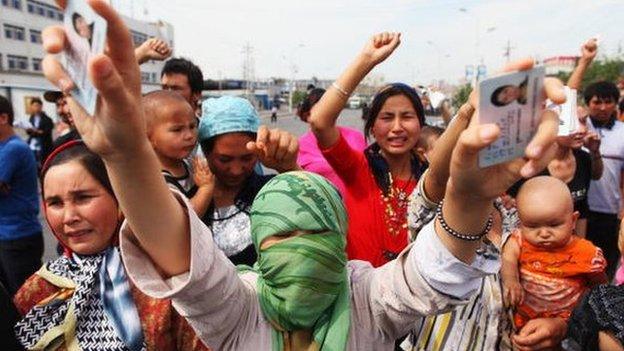China 'breaks Turkish-Uighur passport plot'
- Published
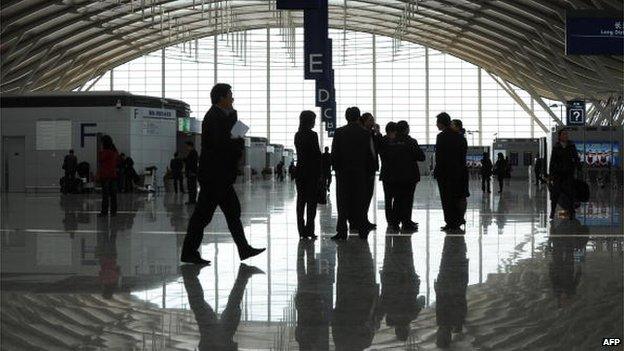
The Uighurs are said to have attempted to leave China via Shanghai's Pudong airport
China arrested nine Muslim Uighurs and 10 Turkish nationals in November over a fake passport plot, state media report.
The Global Times said the Turks gave illegal passports to the Uighurs, who attempted to leave China.
Some of the Uighurs' phones contained "terrorist" material, the paper said, and several confessed they were heading for Syria, Pakistan and Afghanistan.
Chinese authorities say they are fighting an Islamist rebellion in Xinjiang, the Uighurs' home region.
More than 200 people died last year in bloody confrontations between Uighurs and Chinese security forces, hundreds of people have been arrested and dozens executed.
Information about incidents in the region is tightly controlled.
Activists say authorities have increasingly repressed the Uighurs, fuelling resentment.
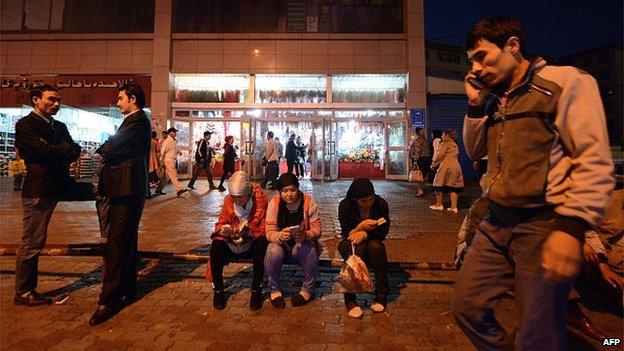
Xinjiang is home to some 10 million Uighurs
The Turkish embassy in Beijing and the police in Shanghai would not verify the latest story and it was not immediately clear why the information had just emerged.
But the Global Times said the passport-selling scheme had been in progress for months.
Each person paid 60,000 yuan (£6,380; $9,680) for forged and altered passports provided to them by the Turks, who had entered China legally, it said.
One of the Uighurs arrested was a known terror suspect who had "on several occasions in the past broadcast transmissions that fanned ethnic hatred and discrimination in Xinjiang", the paper said.
Dozens of civilians were killed in attacks across China apparently linked to the unrest in Xinjiang. The authorities have blamed Uighur separatists.
News of the arrests comes two days after local media reported that Xinjiang police had shot dead six people who were allegedly trying to detonate a bomb.

Uighurs and Xinjiang
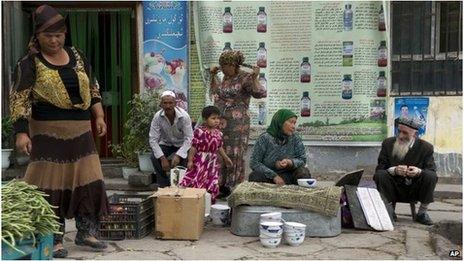
Uighurs are ethnically Turkic Muslims
They make up about 45% of the region's population; 40% are Han Chinese
China re-established control in 1949 after crushing short-lived state of East Turkestan
Since then, there has been large-scale immigration of Han Chinese
Uighurs fear erosion of traditional culture

- Published12 January 2015
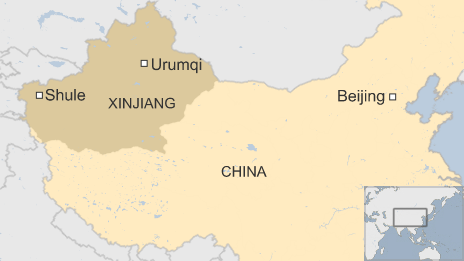
- Published24 May 2022
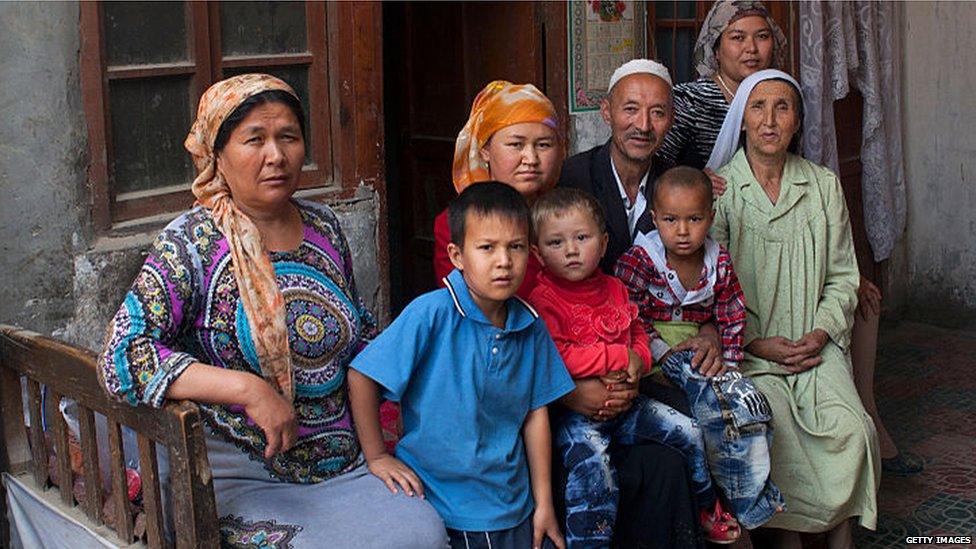
- Published26 September 2014
